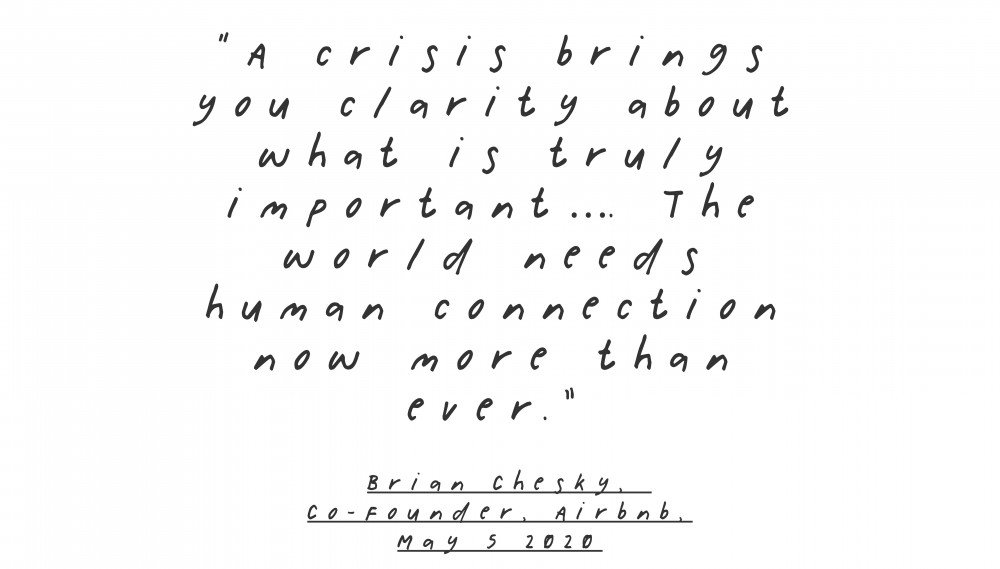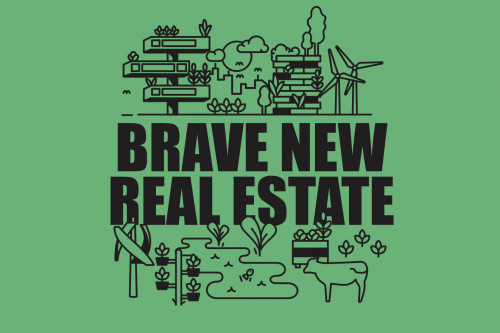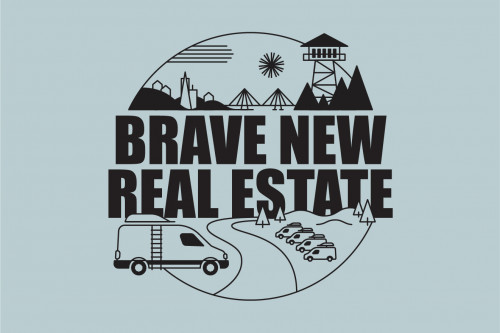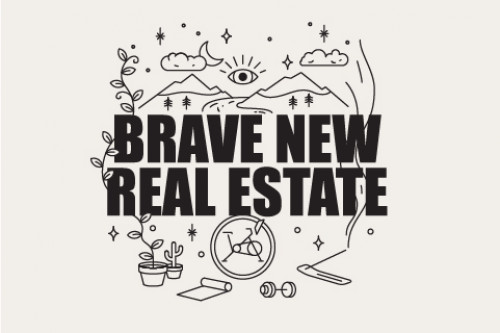The race to make a better built world

Last year I started exploring how real estate will evolve in the decade ahead. I’d seen first hand the success of new residential communities like Hudson Woods taking cues from the Direct-to-Consumer and hospitality industries and observed the changing commercial sector with Co-living and Co-working brands emerging – packaging distinctive, shared, and engaging experiences at a decent price point. All against the backdrop of vast amounts of venture capital enable incumbents and new entrants alike to reinvent the way space is acquired, developed, sold, used, and operated.
I wanted to know: what’s next?
And then the coronavirus hit, the lockdown ensued, and the subsequent economic crisis made that thinking suddenly more urgent. Throughout history, pandemics have accelerated change. The professor, author and urbanist Richard Florida recently wrote that this pandemic should be seen as an opportunity to reshape cities in more equitable ways.
So what does this mean for our built world? We still live in a fog of uncertainty, with an undertow of anxiety. Our mood hovers between moments of clarity and caution. Our daily reflection can switch between – Push? Pivot? Pull? Or Pause?. So it’s hard to get a clear head. But here’s is where I think the opportunity lies.
The crisis has shown us how tech can help us talk, stay in touch, work together, learn, experience places, and consult a doctor — all online. It has speeded up the move from cash to digital payment. It liberated us from commuting, made business travel seem unnecessary. Online, we’ve seen geography almost obliterated - it’s as easy to work with colleagues on another continent as in the next room. Schools and universities adopted online teaching over a weekend, having been wary of it for a decade.
At a deeper level, individualist values have shifted rapidly into more collective values. In a crisis, we help each other. We rediscovered the idea of family and neighborhood. There’s a new sense of solidarity – and a more prominent role for the state – accelerating a long-term reaction away from the extreme individualism and corporatism of the last thirty years. Many companies have shown this sense of solidarity with the George Floyd protests, and some have postponed paying dividends, accelerating a long shift from shareholder to stakeholder capitalism. We’ve had to find alternative pastimes to go shopping, shifting away not just from physical stores but also from consumption itself. Personal growth and self-development platform subscriptions are through the roof as people look deeper into themselves for answers.
As we start to open up, there are still many questions. Some habits appear to be bouncing back already. But underlying mindsets will see a lasting change. The events of 2020 are not only changing how we live but also why we live. All this will accelerate a new meaning for retail and industrial space. A new definition of the office. New standards for reshaping lodging and housing. And a new desire to reimagine inclusivity for our cities.
Until recently, the way people designed, operated, and valued real estate hadn’t changed in decades. Many of the words used to describe real estate assets – landlord, yield, tenant, improvements – originate in the medieval agricultural world. And many of the attitudes and assumptions toward real estate were equally ancient.
In the space of recent years, technology has undermined the foundation of real estate asset value. Changing the way humans use retail, office, residential, lodging, and industrial space. It has redefined the meaning of location, visibility, and accessibility and democratized access to capital, relationships, and information. It is eroding the power of regulation and the validity of zoning laws. It is even questioning the very idea that land is a scarce and finite resource.
The biggest new companies that have rewritten the rules of real estate – Airbnb, WeWork, Common, Opendoor, Invitation homes, Compass, and even Uber have created new sources of value, including data and partnerships value-added services, branded experiences, short-term access, community, and more. These brands brought a sense of belonging and loyalty, based around enabling people to do things they couldn’t do before. In the past three years, we have witnessed the rise of ‘Proptech’ — simplifying, streamlining, and eliminating many pain points in the industry. The value was shifting away from the assets themselves, toward those who can understand the needs of specific end users and deliver comprehensive on-demand solutions that make people’s lives better.
And now as the dust clears and we adapt to our ‘new normal’ we have the opportunity to usher in a better kind of built world - conscious, real estate.
By which we mean, firstly, conscientious: firms, landlords, developers, designers with a strong sense of responsibility. This is demonstrated through actions, not ‘greenwashing’ and ‘social purpose’ statements. Not selling but inspiring and convening citizens to play their role. Not stylized utopias, but ethical places and spaces. Not only employing staff (or contractors) but helping their people grow. Not top-down but bottom-up where the genuine community is heard and built. Not just supplying individualistic desires, but forging a sense of solidarity and community. In many cases, they’ll aim not to stimulate consumption, but to reduce it.
But these conscious places aren’t just responsible; they are responsive. Conscious beings are alive, awake, and self-aware. They’ll adapt instantly to changing needs and moods among tenants, owners, managers, and the public. They’ll be not slick, corporate, and mechanistic but emotionally intelligent, organic, rough, unfinished, always morphing, and even laugh at themselves. They are not with a contrived ‘purpose’ but with a natural spirit. Conscious beings learn over time, and so can conscious real estate, supported by machine learning. They will be places where knowledge is shared – in fact, ‘conscious’ literally means ‘knowing together’.
Some examples in the real estate space appear to be more responsible. Think of Common and its sister brands Noah and Kin, setting out to help us all live in more cost-effective and measured rentals. Uber has recognized that being a purely agnostic brand is no longer sustainable, launching initiatives to tackle air pollution, plastic usage, and passenger and rider safety. And in the last months, we saw many global brands like LVMH convert large swathes of their manufacturing to PPE. Walmart and eBay swung into action, supporting testing stations, feeding health workers, and distributing personal protection equipment to those who need it most. But Real Estate has yet adopted a more humble, less corporate, more responsive way of being – maybe we’re seeing it first in the political style of the leaders of countries like Finland and New Zealand. The race is therefore on to be the first fully conscious place.
I think responsive real estate will be the best at attracting people in. And the responsible ones will be those that will keep society’s permission to operate. Conscious, real estate will be both, and it will create the most value. Building conscious places will be a way for landlords, architects, developers, designers, agents to minimize the risk of rejection or irrelevance and maximize opportunities for innovation and growth.
And if pandemics have always reshaped our future, now’s the time not just to be ready for the future, but to create it.


